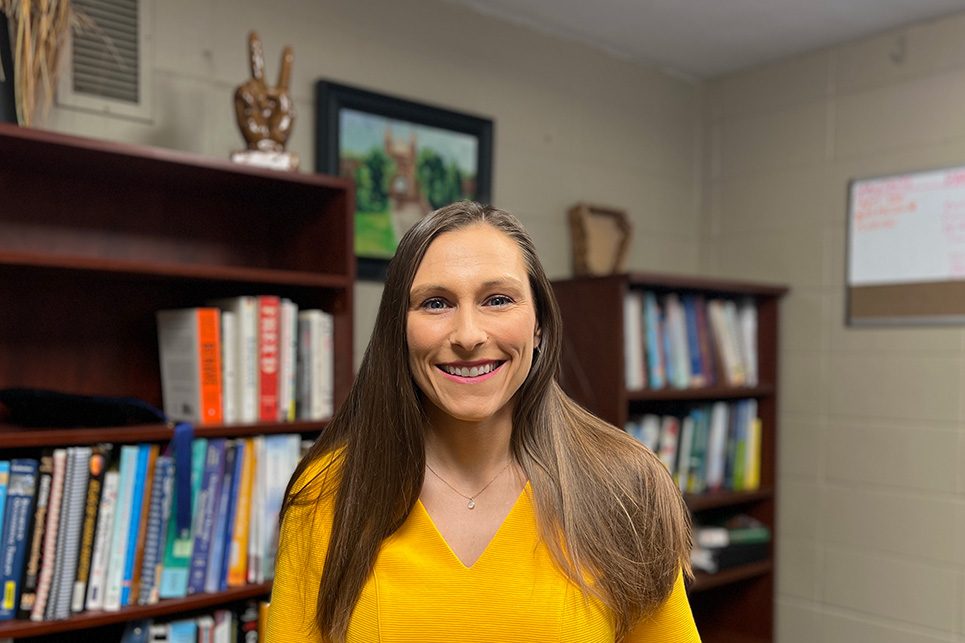Oct. 23, 2024

Story by Ryan Gauthier, rjgauthier@health.missouri.edu
The modern health care system has advanced to the point that breast cancer is no longer a death sentence, but surviving is not the same as thriving.
Although breast cancer death rates decreased by about 42% between 1989 and 2021, many women who have undergone breast cancer treatment experience cognitive difficulties in the months and years that follow.
Anna Boone, an assistant professor with the Department of Occupational Therapy in the Mizzou College of Health Sciences, hopes to change that.
Thanks to a two-year, $400,000 grant from the NIH, Boone will test metacognitive strategy training with a group of breast cancer survivors. This new type of training teaches people strategies they can use to improve their thinking and memory in different situations.
“What excites me about this work is that it’s giving voice to the everyday lives of people, acknowledging the impact that breast cancer has on their ability to participate in their home, community and at work,” Boone said.
Boone believes metacognitive strategy training could be an effective treatment option for women who struggle to plan, solve problems, remember things and process information quickly in the aftermath of cancer treatment. She’ll be working with MU College of Health Sciences collaborators Tim Wolf and Andrew Kiselica as well as Brett Froeliger and Mojgan Golzy with the MU School of Medicine.
“Many breast cancer survivors experience mild cognitive impairments that impact higher-level activities like work and managing a family schedule,” Boone said. “This project helps women minimize the impact of those impairments on their daily lives through a personalized, collaborative approach.”
Through a partnership with cognitive neuroscientist Brett Froeliger, this project will also use neuroimaging methods to see changes associated with the intervention that may occur while the brain is at rest or engaged in a cognitive task.
Cognitive difficulties after breast cancer treatment have sometimes been referred to as “chemo brain,” but Boone said that notion has evolved over time. Health professionals now know that radiation, hormonal treatments and the disease itself all play a role in these cognitive changes.
Should the metacognitive strategy training enhance cognitive performance and brain activity in study participants, the research team believes it could lead to a new treatment option that improves the quality of life for breast cancer survivors living with cognitive challenges.
“We’ve improved breast cancer survivorship greatly in recent years, but it turns out people want to do more than survive — they want to thrive,” Boone said. “This metacognitive intervention should help us figure out what living means to each person and enable them to gain the skills they need to reduce the impact of the cognitive impairment on their daily life.”

